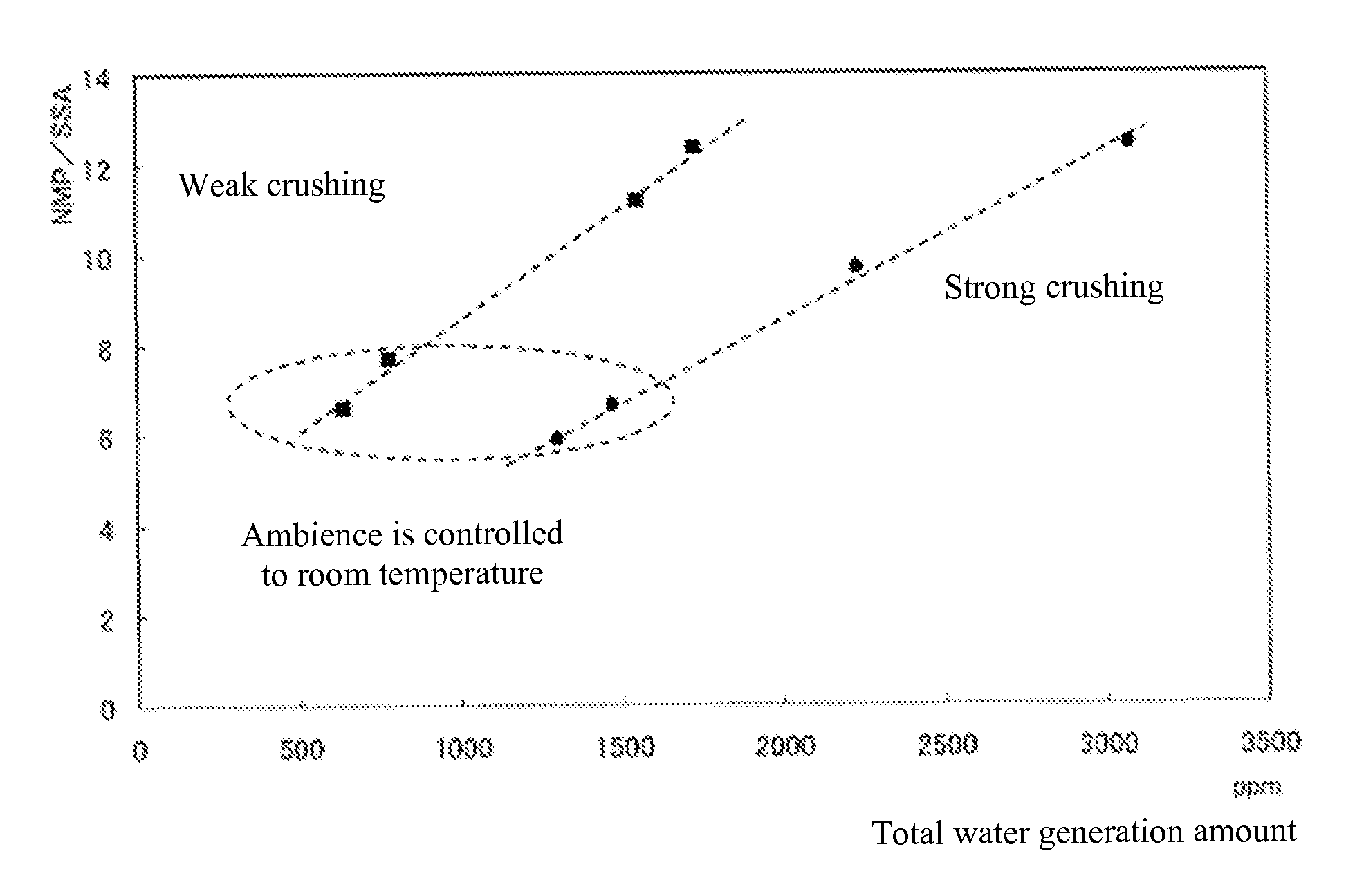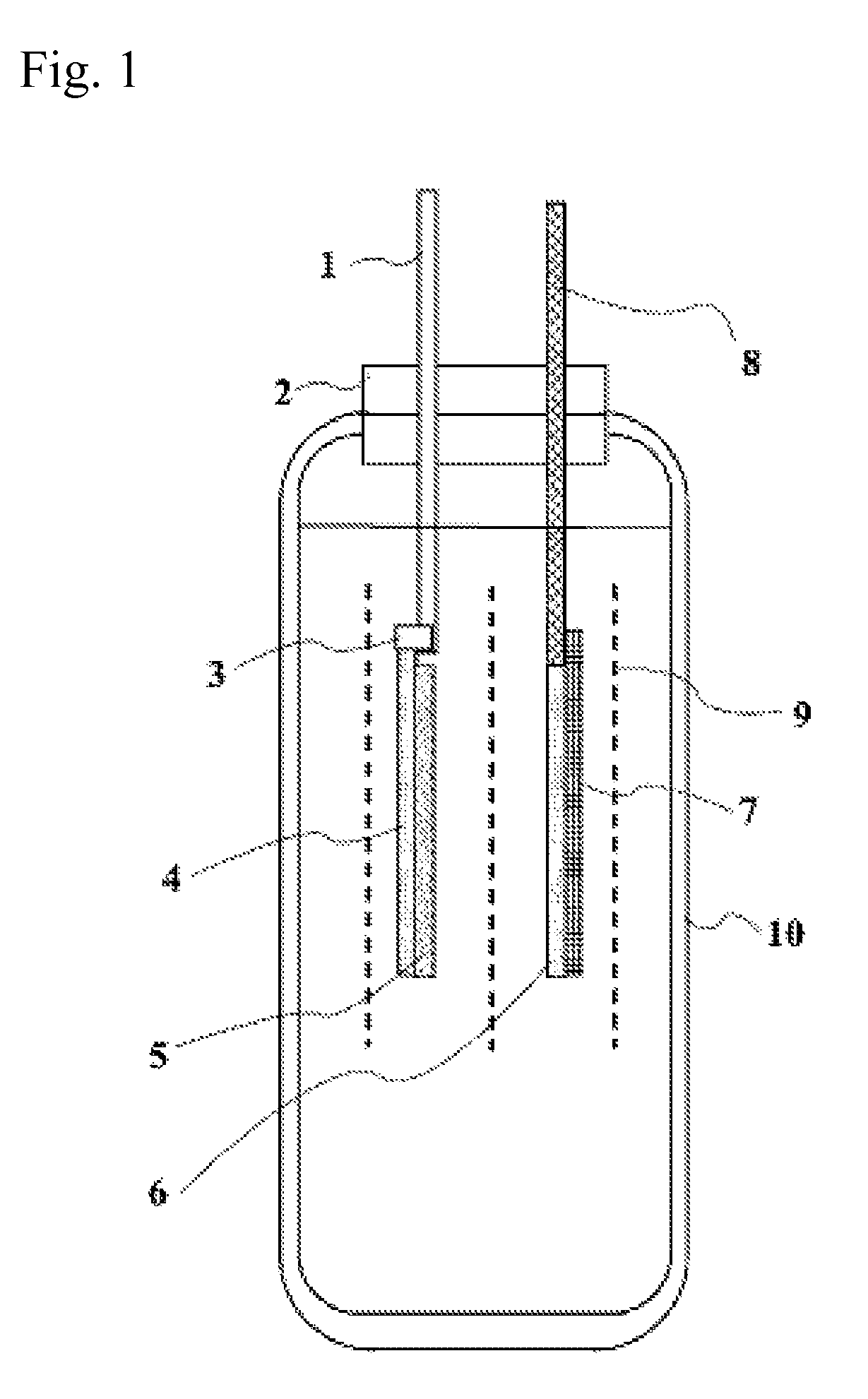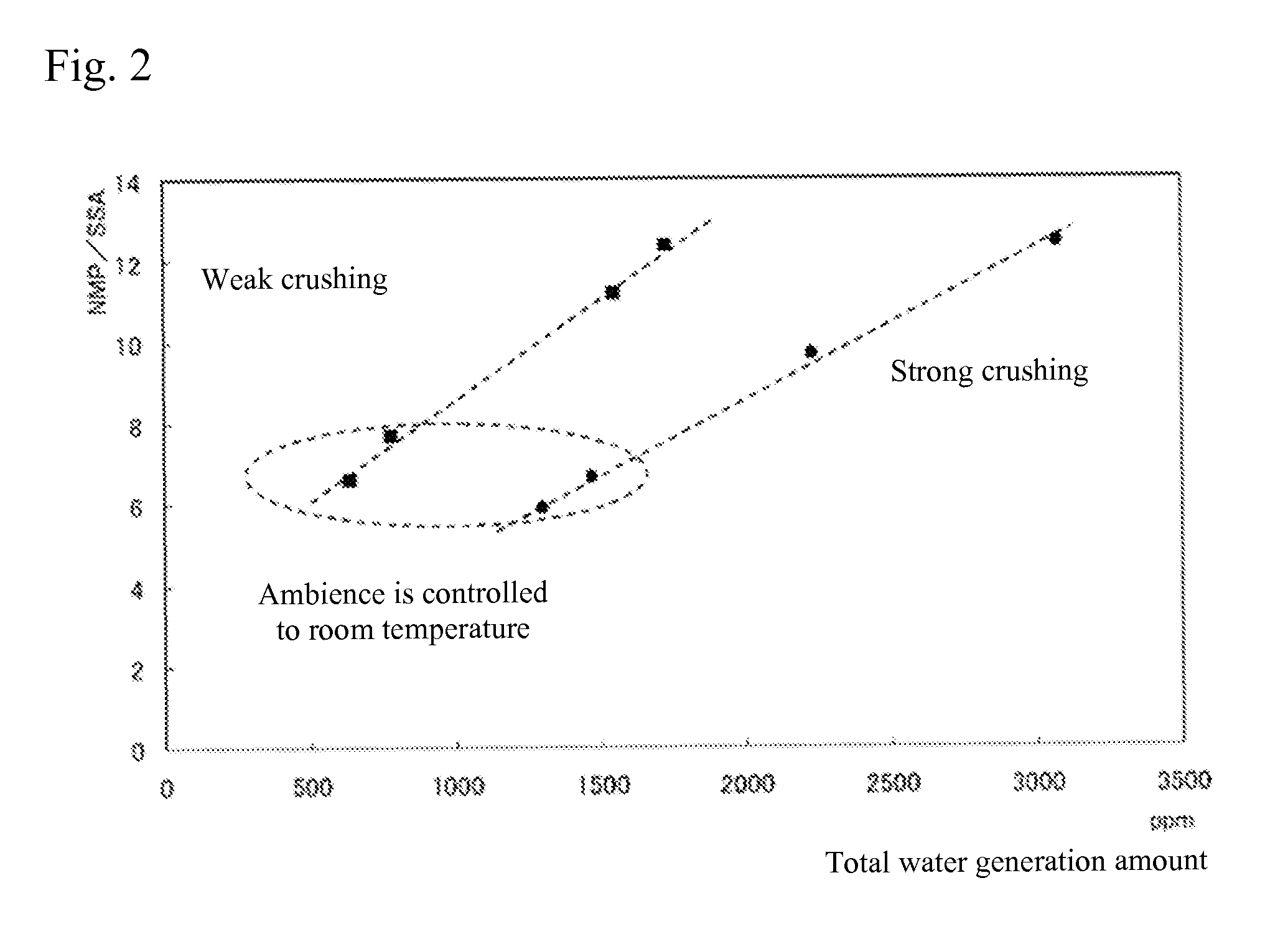Lithium-titanium complex oxide and manufacturing method thereof, and battery electrode using same
a technology of complex oxide and lithium titanium, which is applied in the direction of titanium compounds, cell components, alkali titanates, etc., can solve the problems of difficulty in achieving unfavorable control of the ambience in the entire process, and stability drop, etc., to achieve stable dispersion in the dispersion medium, high safety and stability, the effect of stable dispersion
- Summary
- Abstract
- Description
- Claims
- Application Information
AI Technical Summary
Benefits of technology
Problems solved by technology
Method used
Image
Examples
example 1
[0064]Into a 5-L pot, 728 g of a highly pure Anatase-type titanium dioxide (Ishihara Sangyo) and 272 g of a reagent-grade lithium carbonate (Kanto Kagaku), were introduced and sealed together with 7 kg of zirconium beads of 10 mm in diameter, after which the mixture was agitated for 24 hours at 100 rpm and then separated from the beads to obtain a mixed powder. The mixed powder was filled in a saggar and heat-treated in a continuous sintering furnace in atmosphere under a profile of maintaining the maximum temperature of 850° C. for 5 hours. This heat-treated powder was cooled to room temperature and then crushed in a ball mill for 5 hours, after which the crushed powder was reheat-treated in a continuous sintering furnace under a profile of maintaining the maximum temperature of 600° C. for 3 hours. During the reheat treatment, dry air with a dew point of −70° C. was passed through the furnace after the maximum temperature was reached, and outside the furnace until the powder tempe...
example 2
[0065]A lithium-titanium complex oxide powder was obtained in the same manner as explained in Example 1, except that the dew point of the reheat treatment ambience was changed to −30° C.
example 3
[0066]A lithium-titanium complex oxide powder was obtained in the same manner as explained in Example 1, except that the heat-treated powder was crushed in a ball mill for 1 hour.
PUM
| Property | Measurement | Unit |
|---|---|---|
| temperature | aaaaa | aaaaa |
| temperature | aaaaa | aaaaa |
| temperature | aaaaa | aaaaa |
Abstract
Description
Claims
Application Information
 Login to View More
Login to View More - R&D
- Intellectual Property
- Life Sciences
- Materials
- Tech Scout
- Unparalleled Data Quality
- Higher Quality Content
- 60% Fewer Hallucinations
Browse by: Latest US Patents, China's latest patents, Technical Efficacy Thesaurus, Application Domain, Technology Topic, Popular Technical Reports.
© 2025 PatSnap. All rights reserved.Legal|Privacy policy|Modern Slavery Act Transparency Statement|Sitemap|About US| Contact US: help@patsnap.com



